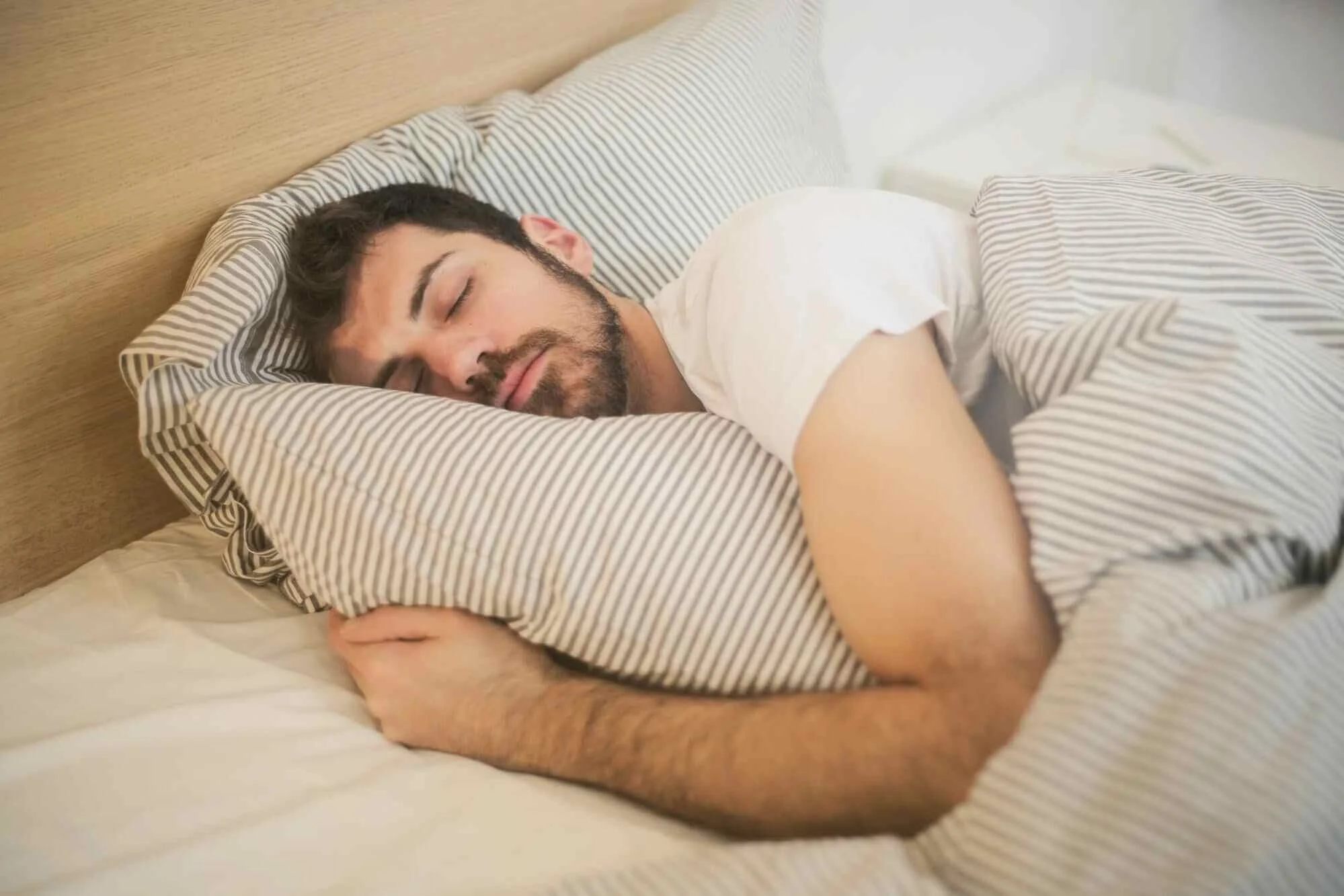How Many Calories Do You Burn Sleeping?
While sleeping requires less energy than most daytime activities, you do in fact burn calories while you sleep.
Some people may think that shortening sleep can lead to weight loss as they’ll burn more calories awake. And while on the surface level this might be true, cumulative sleep loss could contribute to weight gain and lead to obesity - it’s also very dangerous. So don’t throw your pillow out the window just yet!
Sleep deprivation can also lead to many other physiological changes in the body. It elevates hormones such as the stress hormone, cortisol. Hormones like this not only make your day-to-day function seemingly more difficult and unpleasant, they also increase fat retention in the body.
There are some factors, including diet, exercise and other variables that impact how many calories you burn while you sleep. And a lot of it comes back to your metabolism. If you’re having trouble with energy levels or weight management, and your sleep is an issue, read on for everything you need to know about calorie burning and sleep.
How many calories do you burn sleeping?
As a general rule of thumb, we burn approximately 50 calories an hour when we’re sleeping. This number will differ from person to person based on your personal basal metabolic rate or BMR.
Your BMR is essentially the energy your body requires for essential functioning through the day, including circulation, breathing, temperature regulation and more. Your BMR is responsible for 80% of the calories you burn throughout the day, which is why so much of the conversations around weight loss come back to your metabolism.
So what are the specific factors that affect your BMR? Your BMR is affected by a variety of influences including:
Age - Metabolism decreases as we age.
Diet - A balanced diet may influence your metabolism.
Gender - Males generally have a higher BMR than females.
Sleep Quality - Poor sleep greatly influences metabolic rate.
Genetics - Genetic factors may have some impact on BMR.
Hormones and Medical Conditions - Pregnancy, menopause and health conditions can impact metabolism.
Height and Weight - A larger person requires more calories to function.
Fitness - As muscle burns more calories than fat, those who engage in regular fitness may have a higher BMR.
Determining how many calories you burn
While there are tests available to measure your metabolic rate, they are generally expensive and not easily accessible. To get a basic idea of your BMR, you can use the Harris-Benedict equation, one of the most common methods which factors in gender, weight, height and age:
Male: BMR = 66.5 + (13.8 x weight in kg) + (5 x height in cm) – (6.8 x age in years)
Female: BMR = 655 + (9.6 x weight in kg) + (1.8 x height in cm) – (4.7 x age in years)
The result of the Harris-Benedict equation will give you your BMR while awake for a 24-hour-period. Divide the number by 24, then multiple by 0.85 to determine approximately how many calories you burn per hour when you’re asleep.
Do sleep stages impact calorie burning?
The two basic types of sleep are REM (rapid eye movement) and non-REM sleep. During a normal nights sleep, you’ll cycle through both these types of sleep and they can be identified through specific brain waves. Generally, you won’t reach your first period of REM sleep until about 90 minutes after falling asleep.
REM sleep plays a critical role in memory consolidation, repair of the body and more. It also happens to be the deepest stage of sleep and the period in which you burn the most calories. Getting plenty of REM sleep will help you to feel and function at your best and burn the most calories - win, win!
How to burn more calories whilst sleeping
We don’t need to tell you that a good night’s sleep is essential for good mental and physical health - you can feel the effects of just one poor night’s sleep the next day!
We may be able to burn more calories in our sleep simply by improving the quality of our sleep. And while this may seem simple and straight forward for some, for others a good nights sleep is a delicate and complex thing.
To improve the quality of your sleep, you may like to try some of the following:
Our body’s love routine. Try going to sleep at the same time every night, ensuring you get the recommended amount of sleep you need.
If you’re tired in the day, have a 20-minute power nap. Don’t exceed this time as it will make it more difficult to sleep at night.
Reduce your alcohol intake, especially three hours before sleeping.
Decrease the amount of and avoid drinking caffeinated beverages after midday.
Avoid strenuous exercise for at least a few hours before sleeping.
Decrease your blue light exposure by switching off electronic devices at least one hour before sleeping. Try reading a book, or another relaxing activity to help you wind down.
Take a warm bath or shower before bed, or consider other mindfulness activities like yoga or meditation to help you de-stress.
Ensure your bedroom is cool and dark, and your mattress and pillows are comfortably supporting your body.
If you’re experiencing persistent disruptions to your sleep, consult with a pharmacist or trusted medical professional to discuss possible solutions.
Any advice provided in this content is of a general nature and does not take into account your objectives, health or needs. The information in this post is not intended to substitute medical advice, diagnosis or treatment and should not be exclusively relied on to diagnose or manage a medical condition. You need to consider the appropriateness of any information or general advice we give you, having regard to your personal situation, before acting on our advice or purchasing any over-the-counter sleep product.

